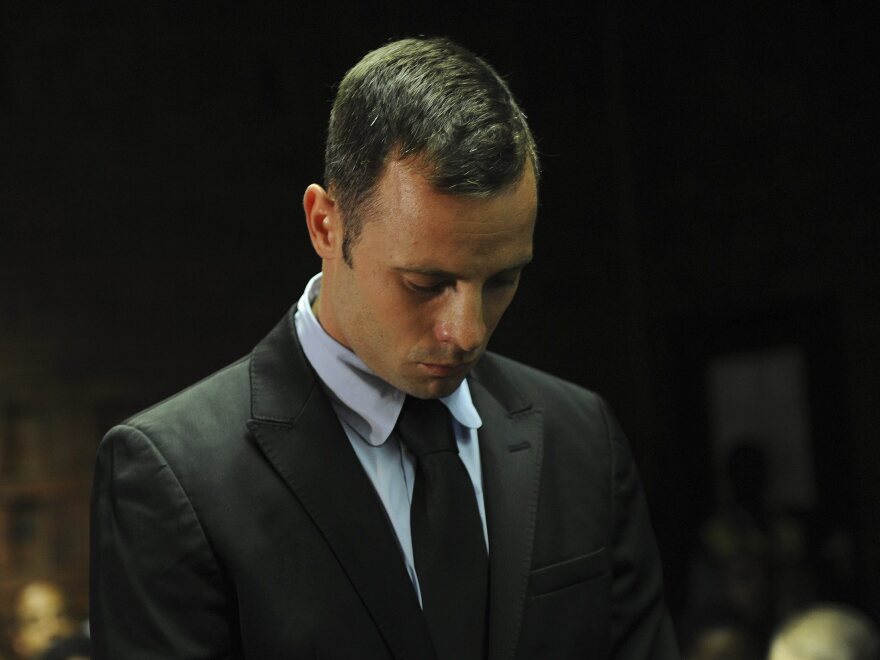A neighbor has told investigators that he heard "gunshots ... a female screaming two-three times, then more gunshots" coming from the South African home of Oscar Pistorius in the early morning hours of Feb. 14, a police officer testified Wednesday at a bail hearing for the Olympic and Paralympic athlete.
The witness has also told investigators about "non-stop talking" and sounds "like fighting" coming from Pistorius's home between the hours of 2 a.m. and 3 a.m.
As the BBC notes, those statements conflict with the account Pistorius has given of what happened when he shot and killed his girlfriend, Reeva Steenkamp. According to Pistorius, he heard a noise coming from a bathroom in his home and — thinking it was an intruder — fired four times through the door. He thought Steenkamp was in bed, Pistorius has said. He denies prosecutors' allegations that he committed premeditated murder.
The athlete's lawyer challenged the officer's testimony about the witness, The Guardian reports, by pointing out that the witness's home is about 300 yards from Pistorius's.
Also at today's hearing in Pretoria, prosecutors said that two boxes of the male sex hormone testosterone and some needles were found in the athlete's home. Pistorius's defense team said the substance was an herbal remedy and not something that athletes such as Pistorius are banned from using. (See 1:35 p.m. ET update below about this issue.)
Pistorius, 26, was born without fibula bones below his knees, and his parents chose to have his legs amputated below the knees when he was an infant. He's known as the "blade runner" because of the carbon-fiber prosthetic legs he uses.
Steenkamp, 29, was laid to rest Tuesday.
Update at 1:35 p.m. ET. Prosecution Admits It Should Not Have Called Substance Testosterone:
"The investigating officer in the Oscar Pistorius murder case made an error in his court testimony Wednesday when he identified a substance found in the athlete's bedroom as testosterone, the national prosecutor said," CBS News writes. "Medupe Simasiku, the spokesman for South Africa's National Prosecution Agency, told The Associated Press that it was too early to identify the substance as it was still undergoing laboratory tests."
Copyright 2021 NPR. To see more, visit https://www.npr.org. 9(MDIxMDkyNjUxMDE0NDY1Njg1NzRiOTRiYQ000))






